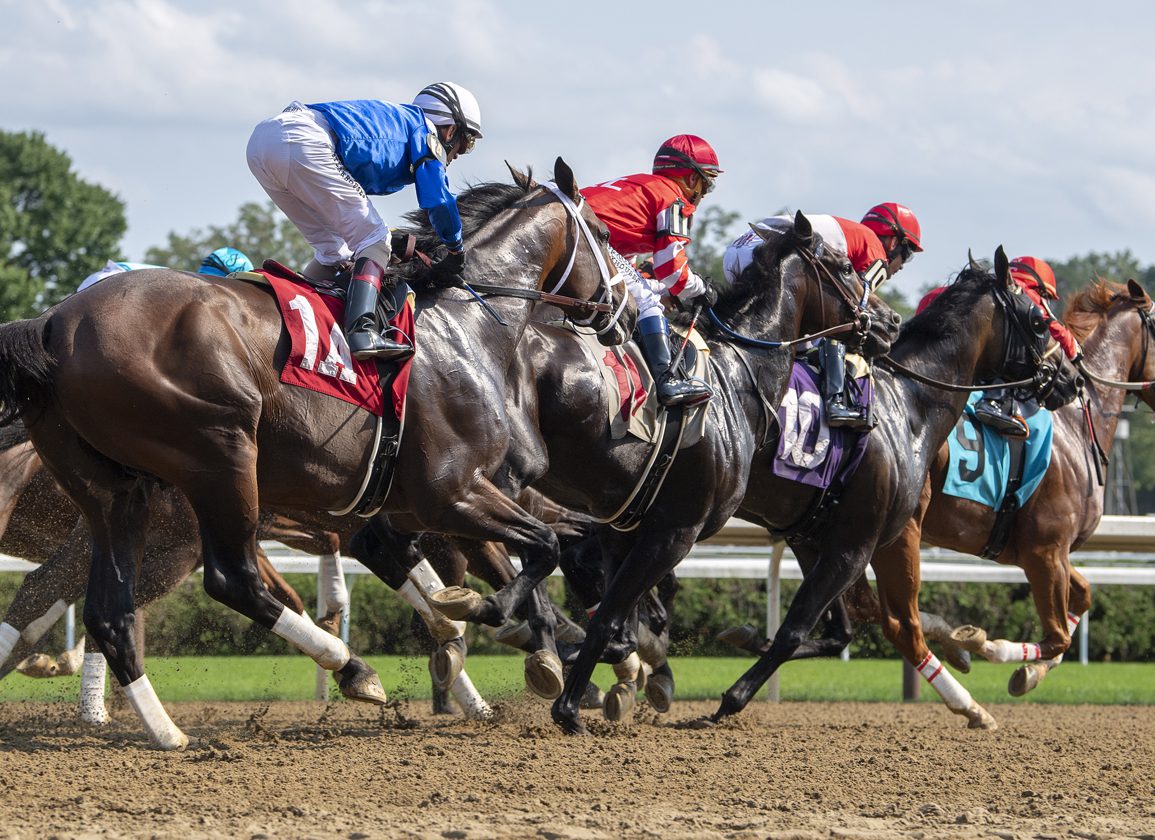By Dan Ross
The Racing Medication and Testing Consortium (RMTC) has suspended its accreditation of the University of Kentucky's Equine Analytical Chemistry Laboratory, according to the RMTC's executive director, Michael Hardy.
This follows news last week that the Horseracing Integrity and Safety Authority (HISA) and Horseracing Integrity and Welfare Unit (HIWU) have opened an investigation into the UK Laboratory's performance, and that the agencies were cooperating with the university's own investigation into the matter.
The university is also conducting an ongoing personnel investigation relating to former lab director Scott Stanley and that “Dr. Stanley was not permitted to be in direct communication with the other staff at the laboratory,” HISA and HIWU wrote in a joint statement last week.
According to Stanley, he stepped down as the UK Lab's director at the beginning of March and has been reassigned within the university. Blood-Horse reported that he had been “removed” from the position.
HIWU stopped sending samples to the UK Lab on Feb. 16. Prior to that, the laboratory had been one of six drug testing facilities used under HISA's Anti-Doping and Medication Control (ADMC) program. According to the RMTC's Hardy, his organization alerted the University of Kentucky to the RMTC's laboratory accreditation suspension on Mar. 11.
When asked what specific developments had prompted the RMTC to take this action, Hardy pointed to the RMTC's laboratory code of standards, section 2.4.9.2.
The document outlines 10 possible considerations that may prompt the RMTC to suspend its accreditation of a laboratory:
- Accreditation suspensions by international lab oversight bodies.
- Failure to take appropriate corrective action after unsatisfactory performance either in routine Analytical Testing or in proficiency testing.
- Failure to comply with any of the requirements or standards listed in an international laboratory accreditation cooperation document.
- Failure to cooperate with the RMTC or the relevant State Horse Racing Authority in providing requested documentation.
- Lack of compliance with the RMTC Laboratory Code of Ethics.
- Major changes in key staff without proper and timely notification to RMTC.
- Failure to cooperate in any RMTC enquiry in relation to the activities of the Laboratory.
- Non-compliances identified from laboratory on-site assessments.
- Loss of financial and administrative support jeopardizing the quality and/or viability of the Laboratory.
- Material breach of contractual obligation to a State Horse Racing Authority.
Hardy declined to elaborate on the nature and severity of the issues identified by the RMTC with operations at the UK Lab. Hardy wrote, however, that “the Horserace Testing Laboratory Committee (HTLC) will, upon receipt, review the laboratory's response and associated corrective actions. Accreditation will not be restored until the laboratory is in full compliance with the Code.”
According to the RMTC's code of standards, the “period and terms” of the suspension shall be proportionate to the “seriousness of the non-compliance(s) or lack of performance and the need to ensure accurate and reliable drug testing of Horses.”
The RMTC can suspend accreditation for a period of up to six months, according to the code of standards, during which time any problems must be “corrected, documented and reported” to the RMTC at least six weeks before the end of the suspension period.
“Delay in submitting the proper corrective actions may lead to an extension of the Suspension period,” the code of standards explains. If the problems are not rectified, laboratory accreditation will be revoked, the document states, “unless an extension, not to exceed two (2) months, is granted by the RMTC.”
In a brief phone interview with the TDN, Hardy added that the RMTC has been “very pleased with the response and communication with executive staff at the University of Kentucky regarding the laboratory and have been assured that they are proactively seeking to redeem those requirements.”
Since Feb. 16, all samples collected in Kentucky and Florida that previously would have been analyzed by the UK Lab have been redirected to Industrial Laboratories in Colorado.
The TDN has reached out to the University of Kentucky for comment. The story will be updated as necessary.
According to a HIWU spokesperson, both agencies were “not party” to the RMTC's decision to suspend its accreditation of the UK Lab.
“Pending implementation of the HISA Equine Analytical Laboratory (HEAL) accreditation standards, a laboratory must be accredited by the RMTC to be eligible for consideration as one of the ADMC Program labs,” the HIWU spokesperson wrote.
Lab accreditation is only one prong of the RMTC, which is also involved in the research, education and advocacy of horse racing's anti-doping and medication control programs.
Not a subscriber? Click here to sign up for the daily PDF or alerts.






